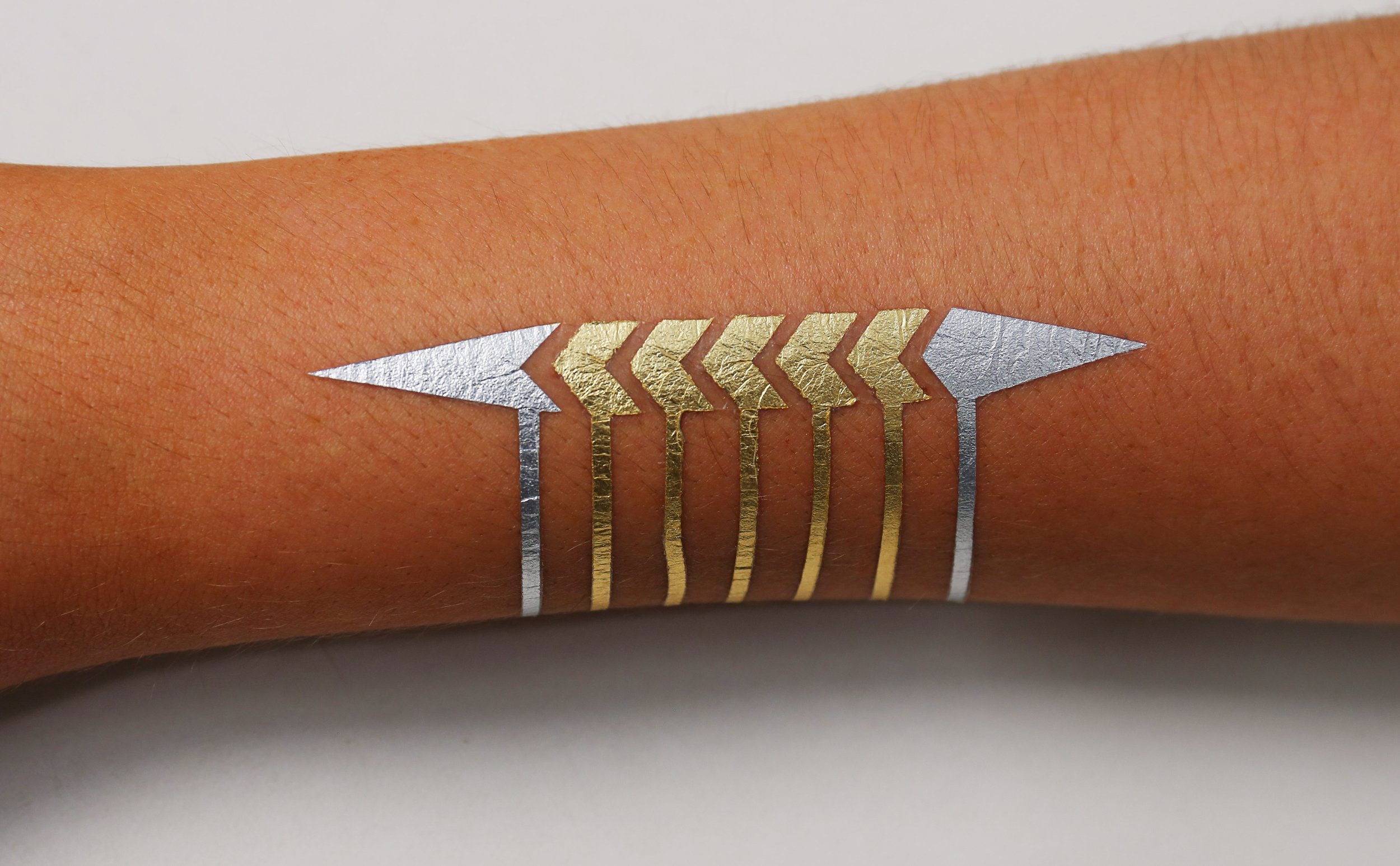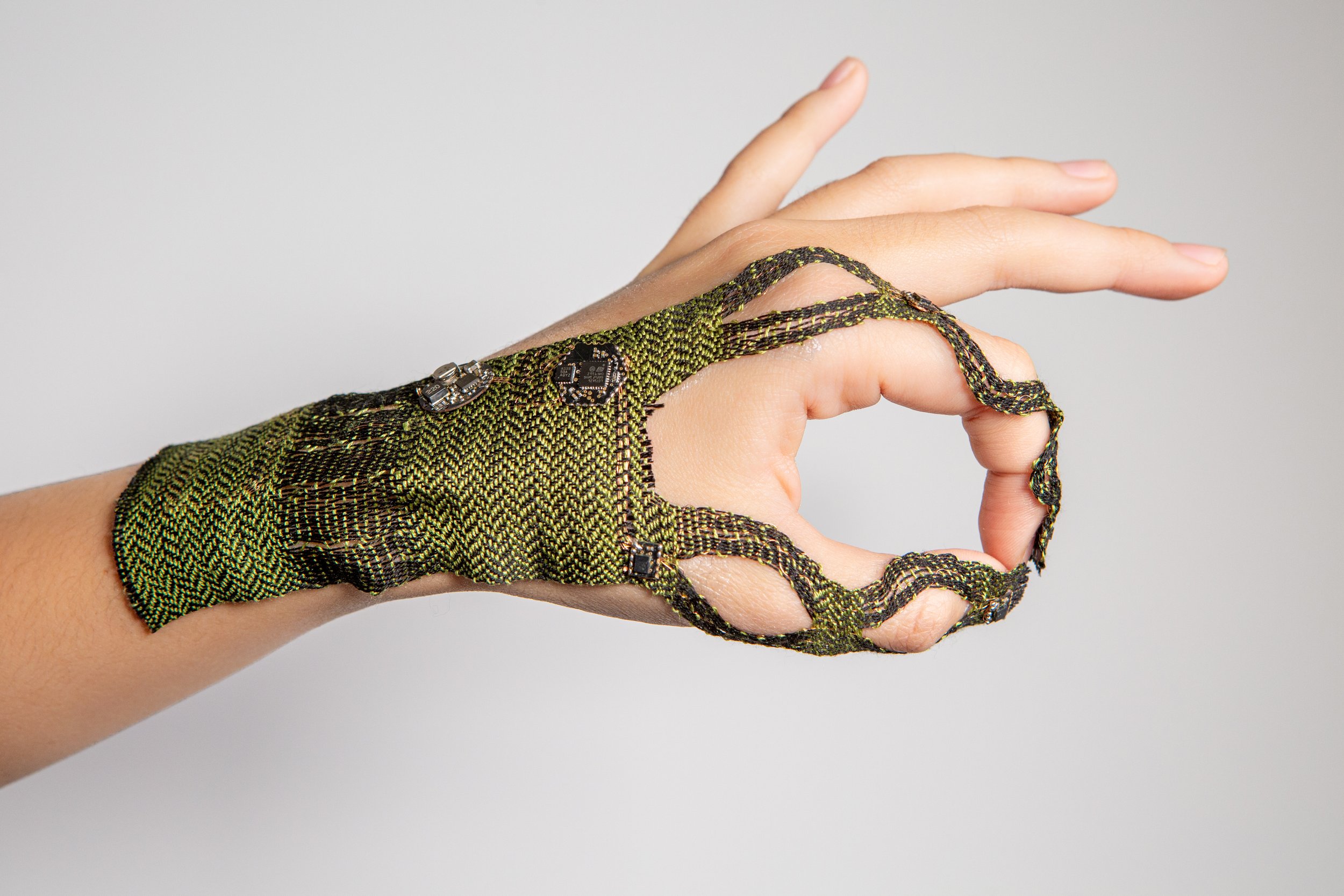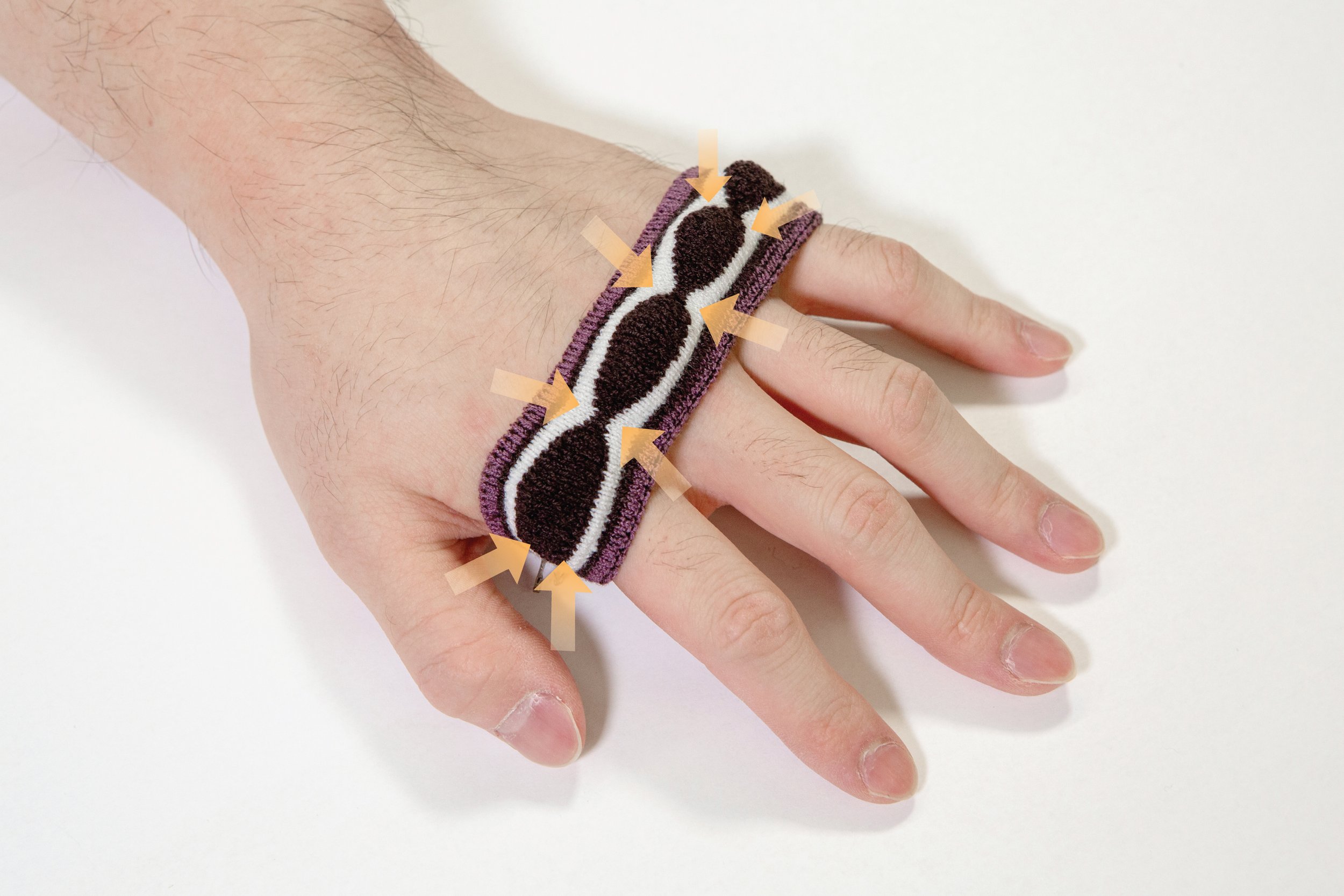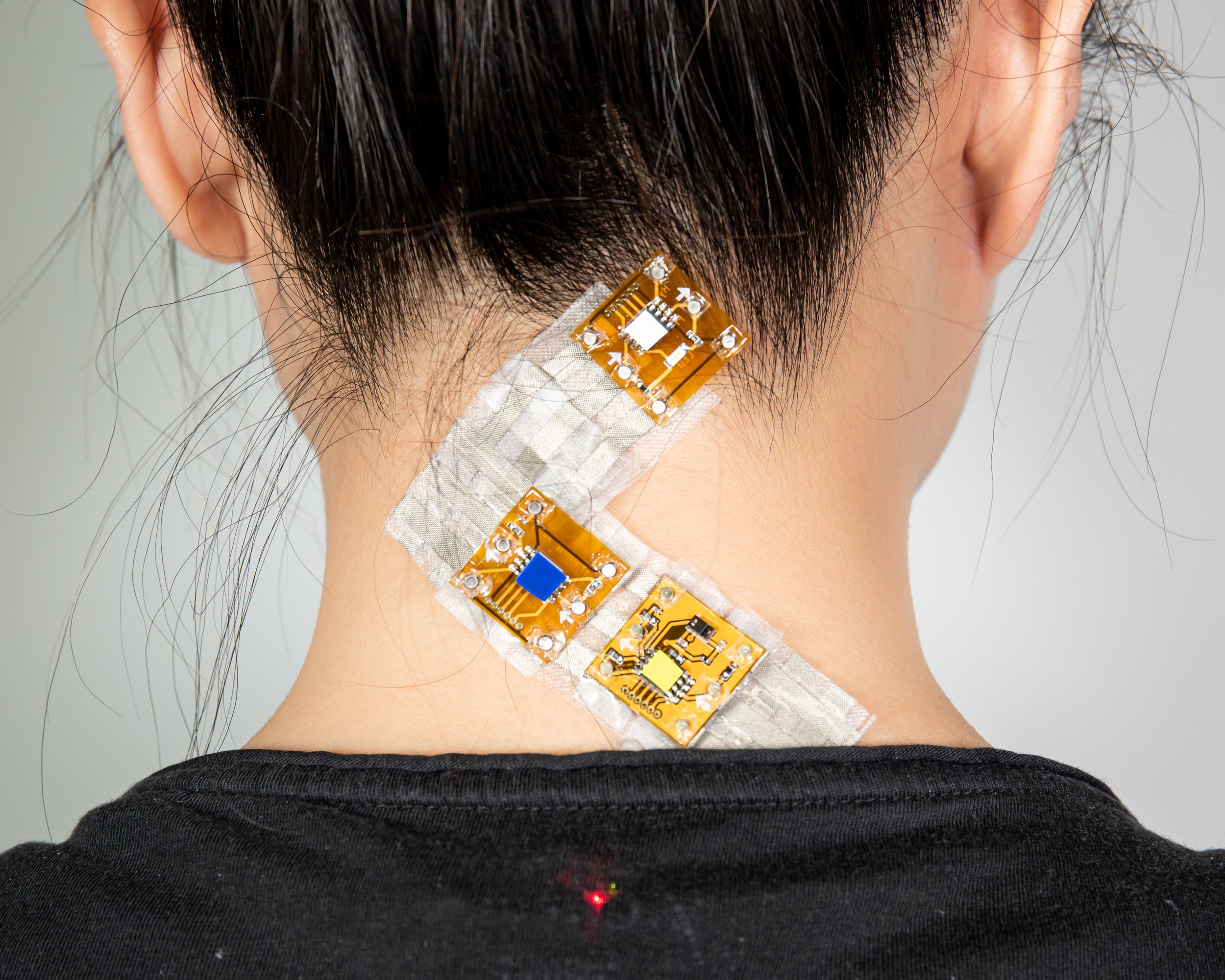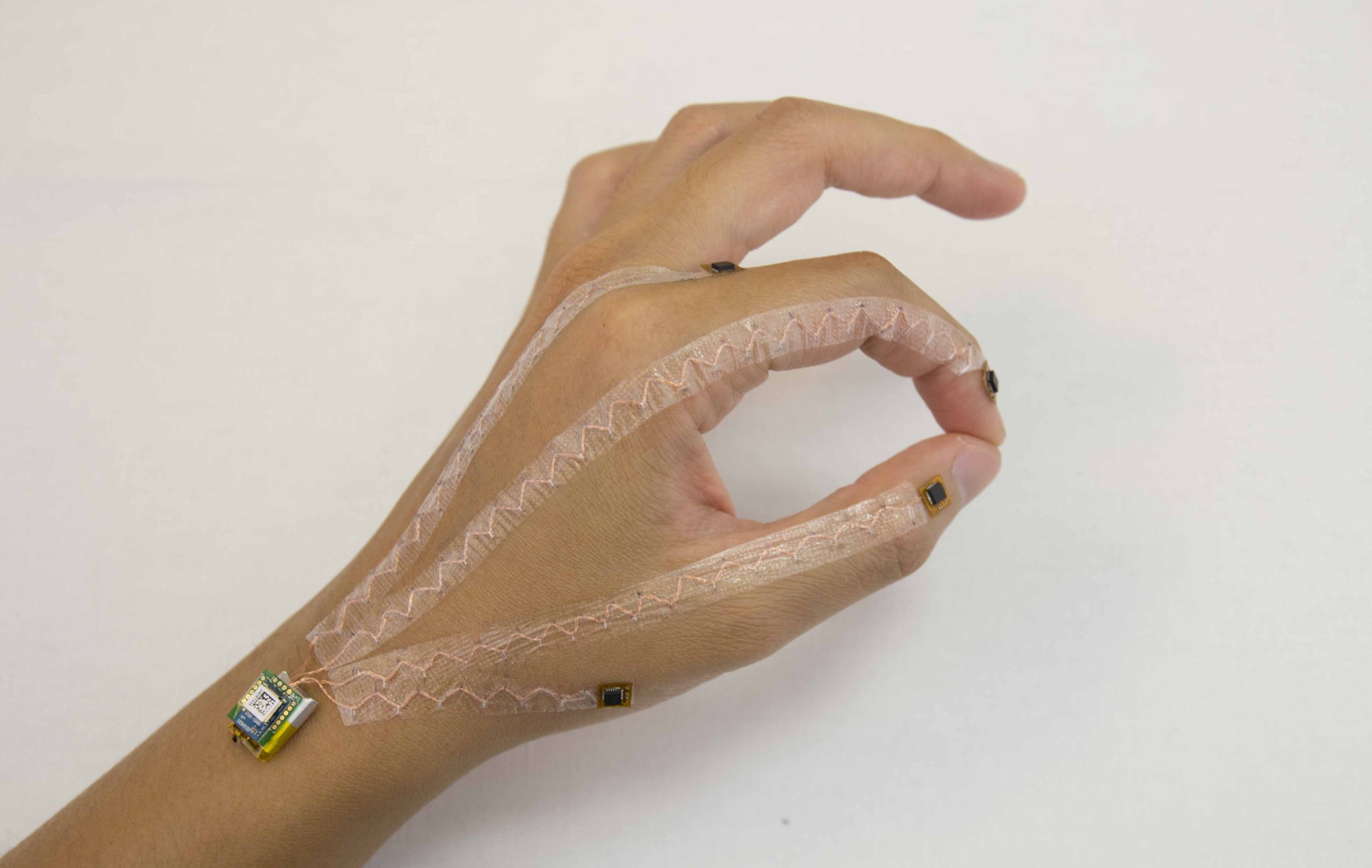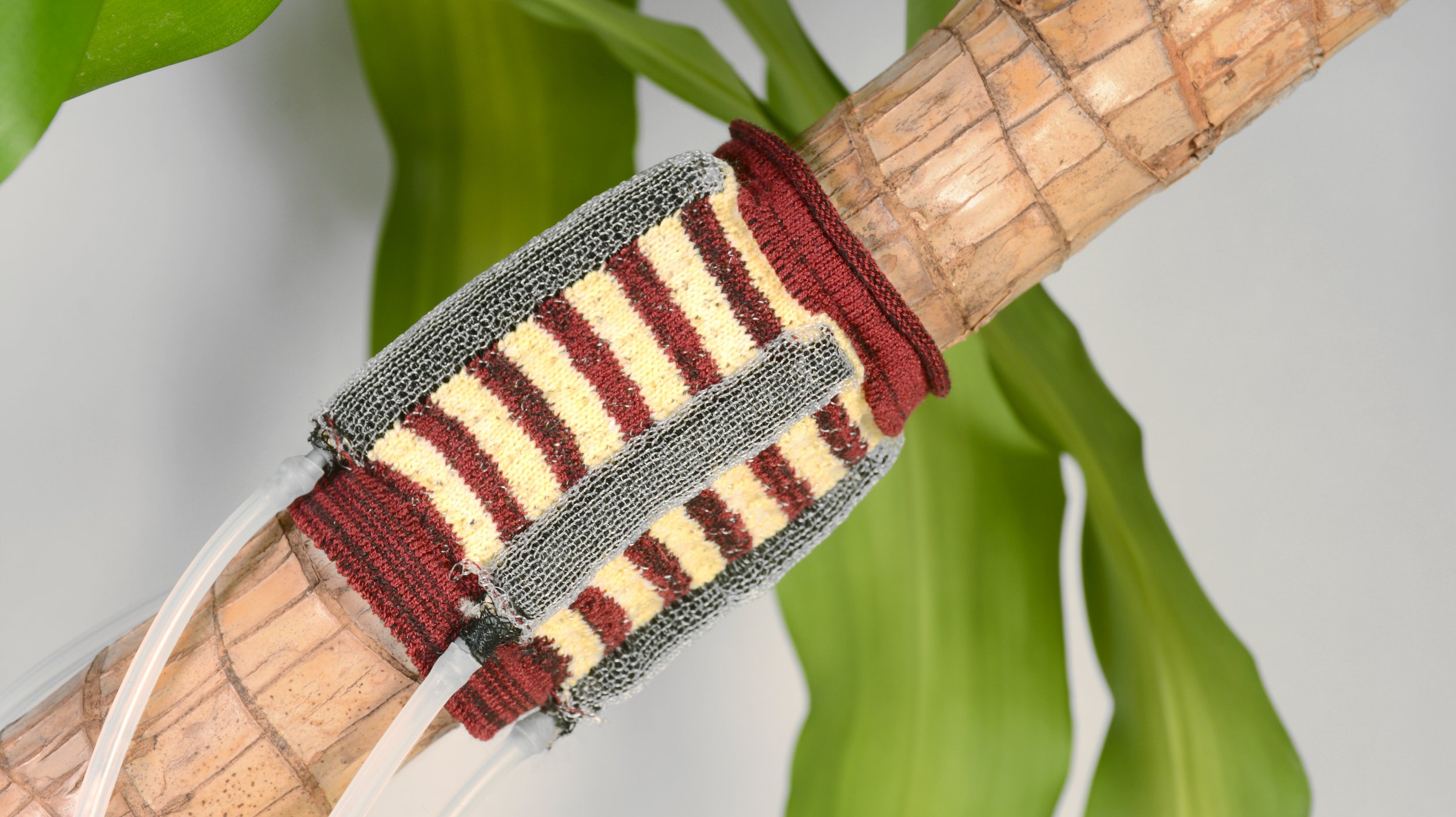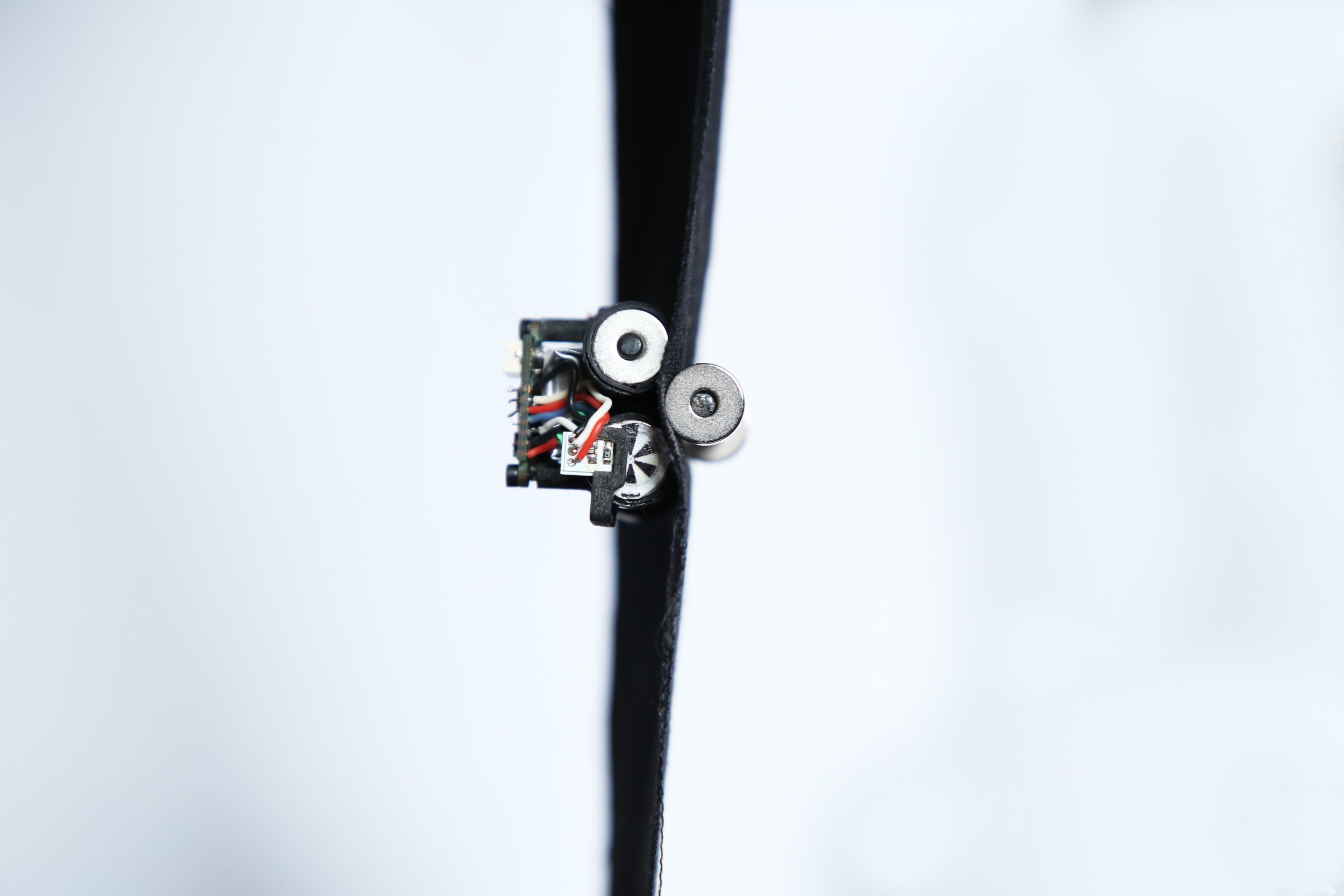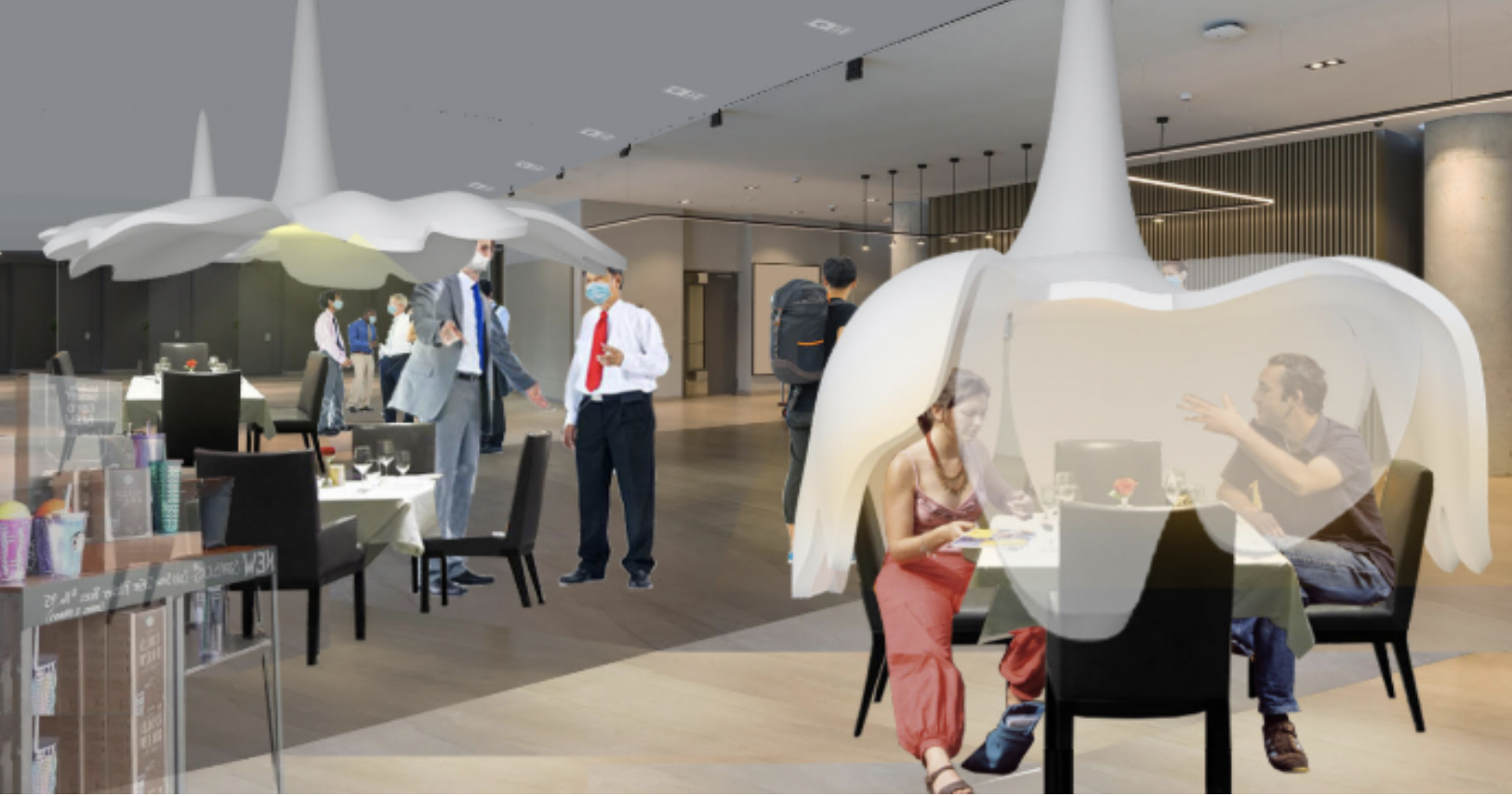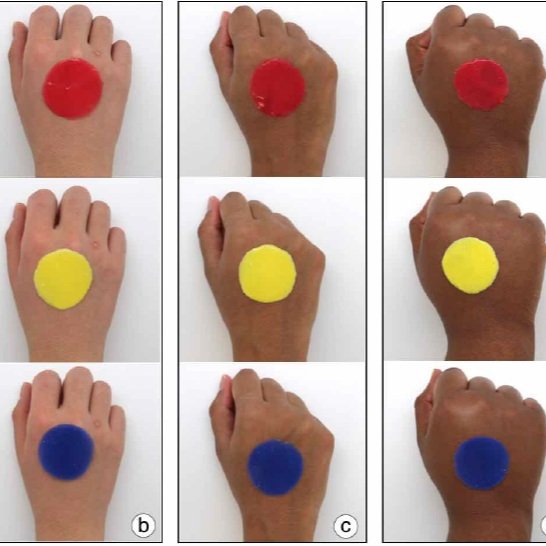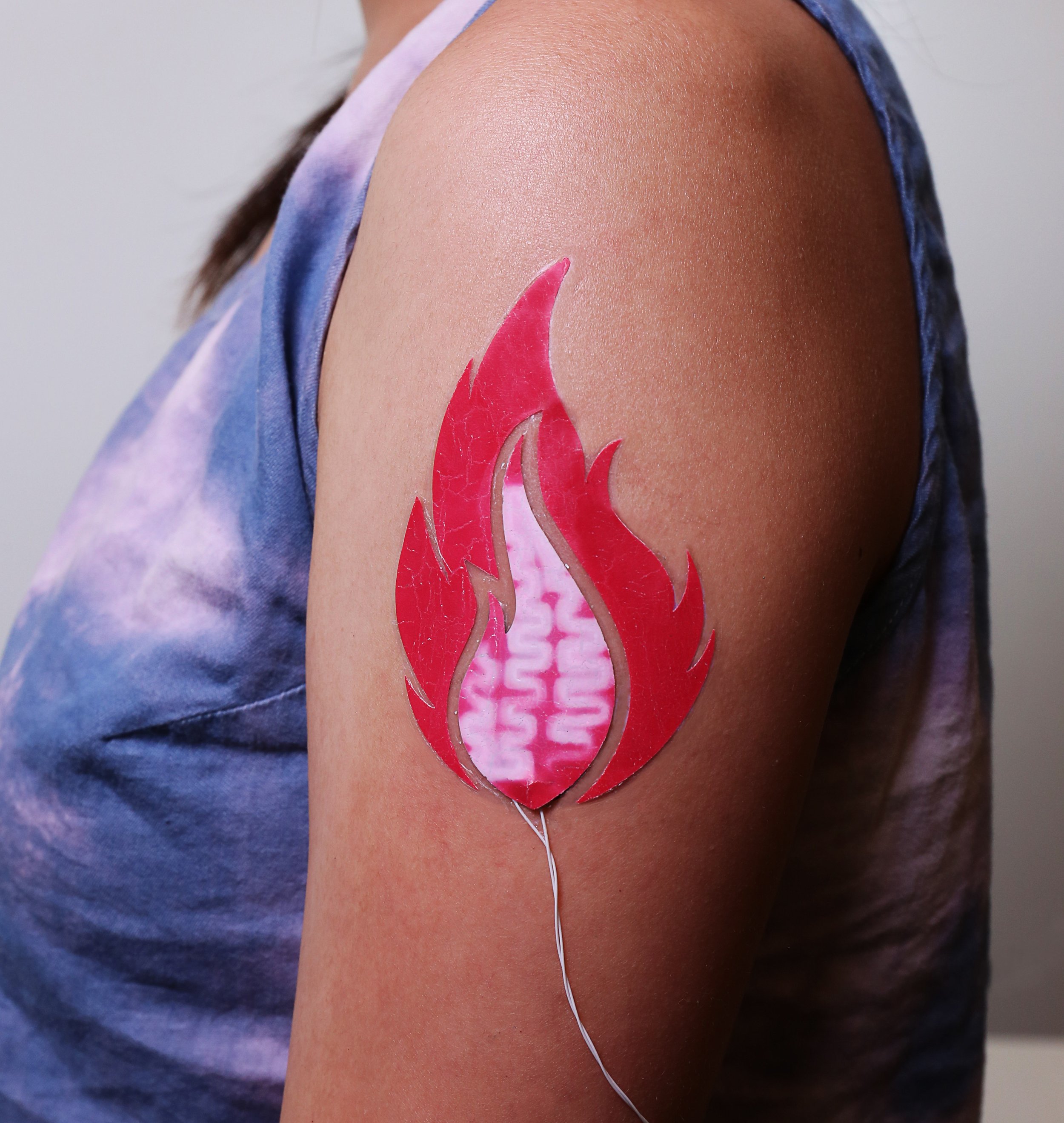About
The Hybrid Body Lab at Cornell University, founded and directed by Prof. Cindy Hsin-Liu Kao, focuses on the invention of culturally-inspired materials, processes, and tools for crafting technology on and into the body surface. Designing across scales, we explore how body scale interfaces can enhance our relations with everyday products and both natural and man-made environments. We conduct research at the intersection of Human-Computer Interaction, Wearable & Ubiquitous Computing, Digital Fabrication, Interaction Design, Fashion Design, and Body Art. We synthesize this knowledge to contribute a culturally-sensitive lens to the future of designs that interface the body and the environment. Our current investigations include:
Wearable Technology & On-Skin Interfaces
We develop novel wearable interfaces and fabrication processes, which a focus on skin-conformable or textile-based form factors. By hybridizing miniaturized robotics, machines, and materials with cultural body decoration practices, we investigate how technology can be situated as a culturally meaningful material for crafting our identities.
Designing Skins Across Scales
‘Many different types of machines that were parts of architecture have become parts of our bodies.’ --Bill Mitchell, Me++
We design “skins” that can be adapted across scales, from the architectural to the body scale. We investigate the interactions of a wearer’s body-borne interface with its surrounding ecology. This includes its interaction with other people, objects, to environments. We are also interested in developing skins that can be deployed across scales -- from the body to the architectural scale.
Towards Culturally and Socially Inclusive Design for On-Skin Interfaces
Wearable devices have evolved towards intrinsic human augmentation, unlocking the human skin as an interface for seamless interaction. However, the non-traditional form factor of these on-skin interfaces may raise concerns for public wear. These perceptions will influence whether a new form of technology will eventually be accepted, or rejected by society. We investigate the cultural and social concerns that need to be considered when generating on-body technologies for inclusive design.
OUR APPROACH
We strive to make an impact in the nexus of Art, Science, Design, and Engineering. We communicate our work to broader audiences through engagement with the popular press, and bring our technology into the hands of broader populations through our community engagement efforts.
Engineering/Scientific Impact: We strive to impact engineering and science by publishing in highly selective, top-tier Association for Computing Machinery (ACM) Computer Science conferences. We are honored to have received multiple Best Paper Honors and Awards (top 5% and 1% of all submissions) for our research:
ACM International Symposium on Wearable Computers (ACM ISWC'22) Best Paper Honorable Mention Award, 2022 [for Scaling E-Textile Production]
ACM Designing Interactive Systems (ACM DIS'21) Best Paper Award, 2021 [WovenProbe]
ACM Designing Interactive Systems (ACM DIS'21) Best Paper Honorable Mention Award, 2021 [KnitDermis]
ACM Designing Interactive Systems (ACM DIS'20) Best Paper Honorable Mention Award, 2020 [WovenSkin]
ACM International Symposium on Wearable Computers (ACM ISWC'19) Best Paper Honorable Mention Award, 2019 [Social Perceptions Towards Skin Sensors]
ACM International Symposium on Wearable Computers (ACM ISWC'18) Best Paper Honorable Mention Award, 2018 [SkinMorph]
ACM User Interface and Software Technology (ACM UIST'16) Best Paper Award, 2016 [Rovables/Kino]
ACM Conference for Human Factors in Computing (ACM CHI'15) Best Paper Honorable Mention Award, 2015 [NailO]
Design/Art Impact: We strive to make an impact beyond STEM and also in the Design and Art communities through: (1) exhibitions of our research artifacts and design processes in international museums and (2) art and design innovation awards:
Representative Exhibitions:
Pompidou Centre, Paris, France, La Fabrique du Vivant ("Designing the Living)
Seattle Museum of Pop Culture, Seattle, WA, A Queen Within: Adorned Archetypes
Museo Del Gioiello, Vicenza, Italy, Jewelry of the Future
New Orleans Museum of Art (NOMA), New Orleans, Louisiana, A Queen Within: Adorned Archetypes
Representative Design/Innovation Awards:
Public Communication: We communicate our work to broader audiences through engagement with the press. We are grateful for media interest from Forbes, CNN, The Washington Post, TIME Magazine, Fast Company, WIRED, DEZEEN, and designboom to communicate the impact of our work.
Community engagement: We believe it is critical to bring emerging on-skin devices, which have an unprecedented proximity and relationship with the human body, beyond the bounds of academic research labs, and to facilitate access for broader populations to engage, build, and interact with these devices. We strive to democratize on-skin interfaces through our community engagement efforts:
Smart Tattoo Workshops for K-12 students in partnership with New York State 4-H and Ithaca ScienceCenter: Introducing girls and rural area youth to interdisciplinary STEM learning through the new application area of on-skin interfaces.
Hybrid Body Lab Artist Residency: Facilitating interdisciplinary collaboration between artists, craftspeople, and STEM researchers to co-invent a more inclusive future for wearable technology.
Open source hardware and tutorials of our on-skin interface technology: Lowing barriers for makers, developers, designers, and artists to join the movement of creating emerging conformable on-skin devices.
Contact
The Hybrid Body Lab is housed in HEB256 in Cornell University’s Human Ecology Building. The lab houses facilities ranging from hardware electronics prototyping, digital fabrication, textile manufacturing, to wet lab facilities to enable the full range of our interdisciplinary work.
Cornell University is located on the traditional homelands of the Gayogo̱hó꞉nǫ' (the Cayuga Nation). The Gayogo̱hó꞉nǫ' are members of the Haudenosaunee Confederacy, an alliance of six sovereign Nations with a historic and contemporary presence on this land. The Confederacy precedes the establishment of Cornell University, New York state, and the United States of America. We acknowledge the painful history of Gayogo̱hó꞉nǫ' dispossession, and honor the ongoing connection of Gayogo̱hó꞉nǫ' people, past and present, to these lands and waters.
